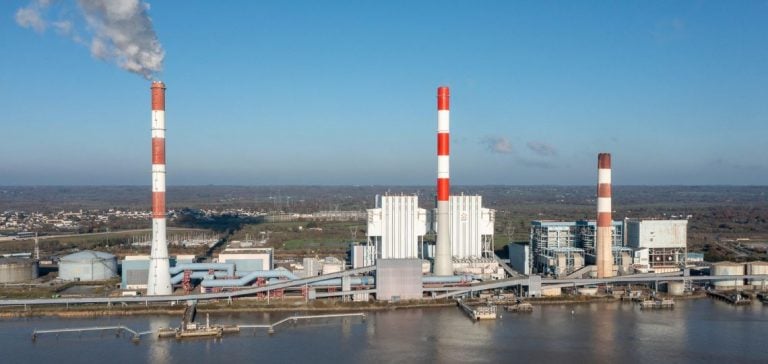EDF has announced the definitive end of electricity production at the Cordemais thermal power plant by 2027.
The group is thus abandoning its biomass conversion project, known as Eco-Combust, which aimed to replace coal with wood pellets in order to maintain an energy activity.
According to EDF officials, the economic conditions were not in place to make the project viable. The costs associated with the purchase of wood pellets and the duration of the commitment with its partner Paprec were deemed too high, making the conversion financially unsustainable.
EDF estimated that potential losses on this project would run into hundreds of millions of euros.
This decision comes at a time when the Group needs to adjust its strategy to meet national energy targets, while taking into account changes in the energy mix.
The Group is relying increasingly on its nuclear facilities, with the commissioning of the Flamanville EPR and increased availability of the existing nuclear fleet, reducing the need to maintain thermal power plants.
Future social and industrial impacts
The Cordemais power plant, which currently employs around 500 people, including 340 in direct employment, will see the majority of its activities cease by 2027.
To limit the social impact of this closure, EDF plans to support employees throughout the process.
Redeployment solutions are envisaged, in particular within the Framatome subsidiary, which is set to take over part of the site for the production of components for nuclear power plants.
This new activity could eventually create around 200 jobs, but this will not fully compensate for the job losses associated with the closure of Cordemais.
The Group assures us that no redundancies are to be expected.
Early retirement, transfers to other EDF sites or internal retraining are the avenues currently being discussed with the social partners.
However, the unions, notably the CGT and CFE-CGC, are denouncing the disillusionment of employees who had hoped to see the site evolve towards decarbonized production.
In their view, the abandonment of the Eco-Combust project calls into question several years of efforts to commit the plant to a process of energy transformation.
Consequences for the regional energy balance
The closure of Cordemais is not just a social or industrial issue, it also raises questions about the energy balance of the Grand Ouest region.
Until now, the plant has played a key role in stabilizing the electricity supply, particularly during winter peaks in consumption.
In September 2023, the French electricity transmission system operator (RTE) was still recommending that Cordemais be kept in operation to meet electricity supply and demand in the area.
The increasing use of nuclear power and the development of renewable energies will have to compensate for the disappearance of this thermal energy source.
The role of more flexible gas-fired power plants could also become more important in guaranteeing regional energy security.
A signal for other coal-fired power plants in France
The shutdown of Cordemais marks an important step in the gradual phase-out of coal-fired power generation in France.
The Saint-Avold power plant in Moselle, owned by GazelEnergie, remains the country’s last remaining facility of this type.
It too is engaged in a conversion project, but the abandonment of Cordemais could raise concerns about the future of this site.
The Saint-Avold unions have requested a meeting with the French Minister for Ecological Transition, Agnès Pannier-Runacher, to clarify the prospects for the conversion project.
France, which has set itself the target of closing its coal-fired power plants by 2027, must nonetheless maintain a balance between its climate commitments and the imperatives of energy security.
The abandonment of the Cordemais project reflects the complexity of France’s energy transition, where economic and social imperatives intermingle with industrial and environmental priorities.
EDF, for its part, continues to adjust its energy mix to meet electricity needs, while respecting the decarbonization objectives set by the government.






















